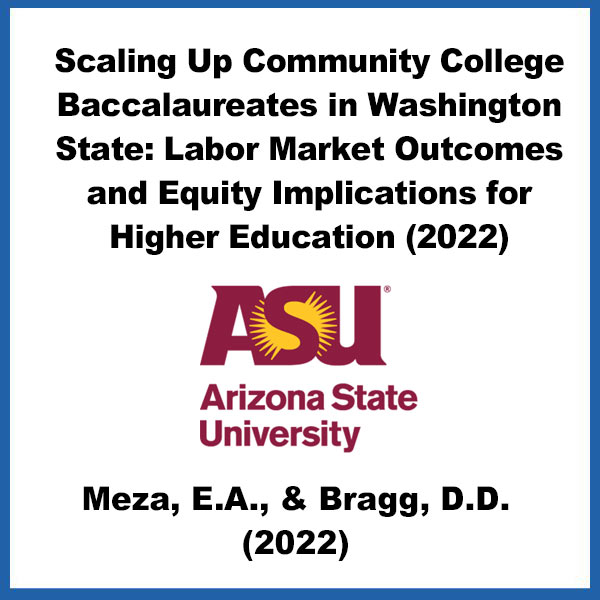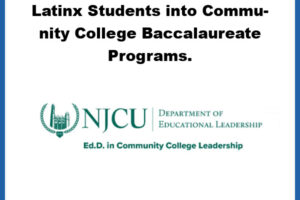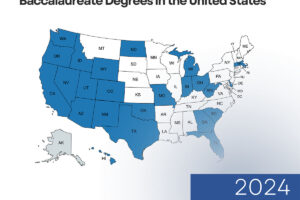Scaling Up Community College Baccalaureates in Washington State: Labor Market Outcomes and Equity Implications for Higher Education (2022)
Abstract Summary:
Community and technical colleges in Washington state were early adopters in the growing trend to offer bachelor’s degrees, actively expanding these degrees over the last 15 years. This study describes the evolving state policy landscape on community college baccalaureate (CCB) degrees in Washington in certain programs previously classified as terminal career-technical education and assesses labor market outcomes for graduates of three high-demand program areas conferring these degrees. Comparing bachelor’s graduates of community colleges to regional university graduates, CCB graduates demonstrated slightly higher employment and earnings in the first quarter post-graduation. However, university graduates caught up to approximately the same or slightly higher earnings as CCB graduates by three years post-graduation. Differences in age and prior work experience of graduates in the two groups may help explain these findings but variation in employment and earnings by gender and race were persistent for both groups, with pronounced disparities for female and some racially minoritized graduates. These findings can inform state policy on baccalaureate attainment, CCB degrees as well as university bachelor’s degrees, to help address inequities in higher education. Future studies evaluating the effects of college degrees on employment and earnings may also be enriched by these results.
Review The Full Research Document Here
Citation(s): Meza, E.A., & Bragg, D.D. (2022). Scaling up community college baccalaureates in Washington State: Labor market outcomes and equity implications for higher education.Education Policy Analysis Archives, 30(140).




